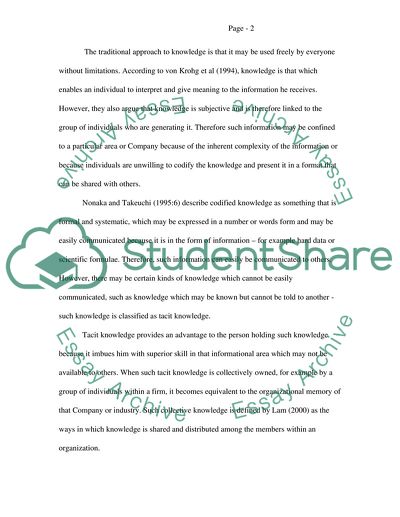Cite this document
(“How 'In the current environment knowledge and its effective management Essay”, n.d.)
How 'In the current environment knowledge and its effective management Essay. Retrieved from https://studentshare.org/miscellaneous/1543060-how-in-the-current-environment-knowledge-and-its-effective-management-are-central-to-gaining-competitive-advantage-discuss
How 'In the current environment knowledge and its effective management Essay. Retrieved from https://studentshare.org/miscellaneous/1543060-how-in-the-current-environment-knowledge-and-its-effective-management-are-central-to-gaining-competitive-advantage-discuss
(How 'In the Current Environment Knowledge and Its Effective Management Essay)
How 'In the Current Environment Knowledge and Its Effective Management Essay. https://studentshare.org/miscellaneous/1543060-how-in-the-current-environment-knowledge-and-its-effective-management-are-central-to-gaining-competitive-advantage-discuss.
How 'In the Current Environment Knowledge and Its Effective Management Essay. https://studentshare.org/miscellaneous/1543060-how-in-the-current-environment-knowledge-and-its-effective-management-are-central-to-gaining-competitive-advantage-discuss.
“How 'In the Current Environment Knowledge and Its Effective Management Essay”, n.d. https://studentshare.org/miscellaneous/1543060-how-in-the-current-environment-knowledge-and-its-effective-management-are-central-to-gaining-competitive-advantage-discuss.


